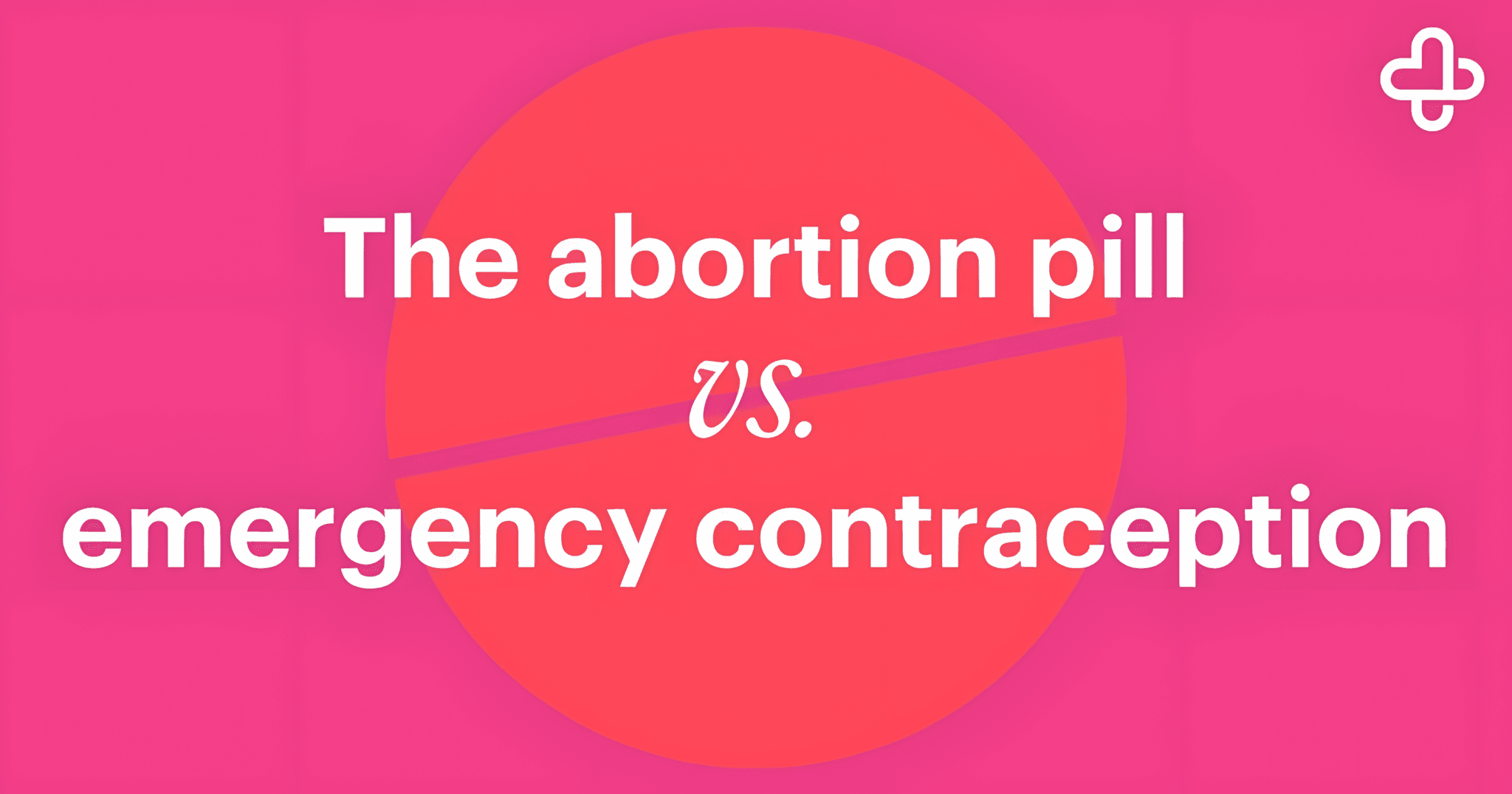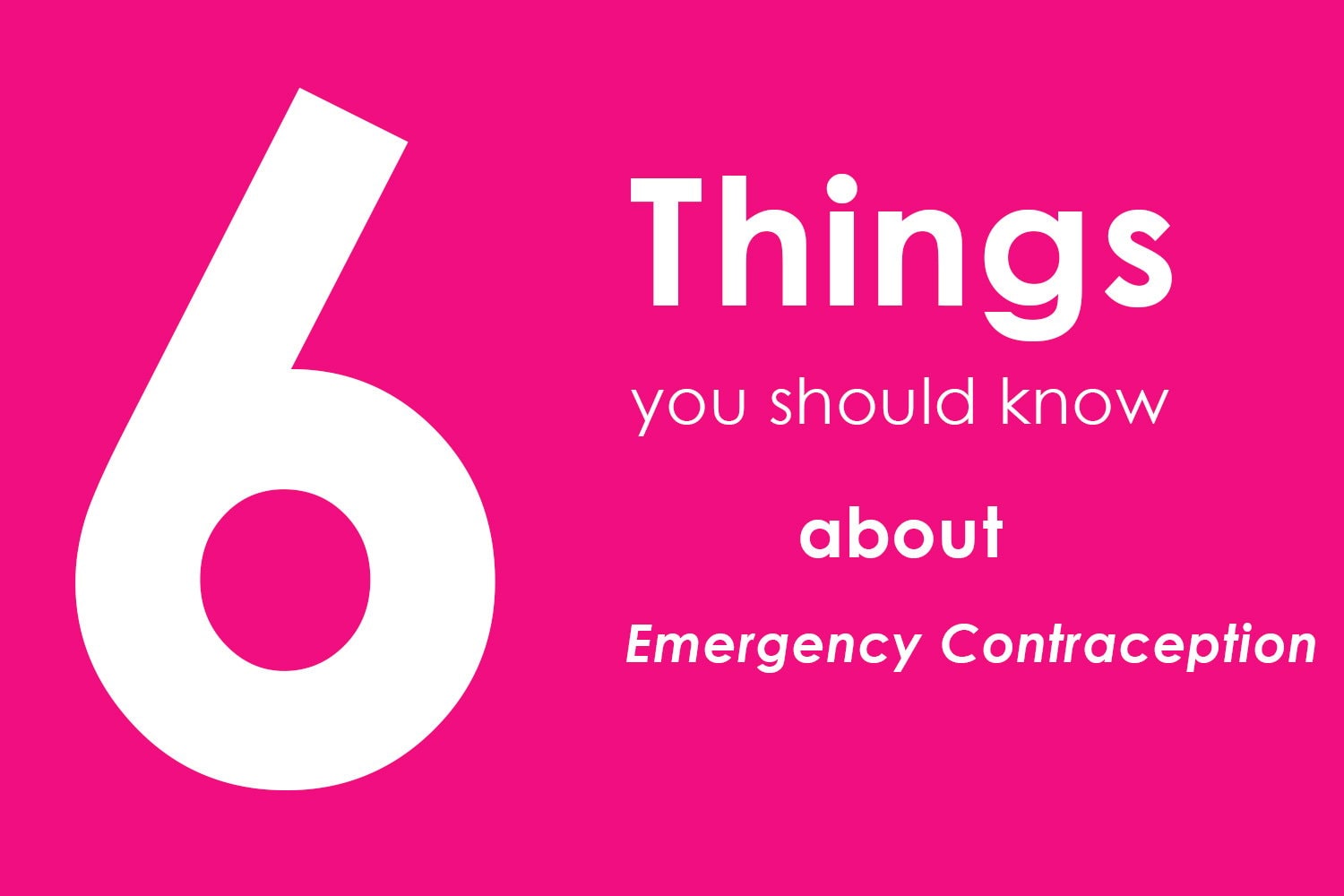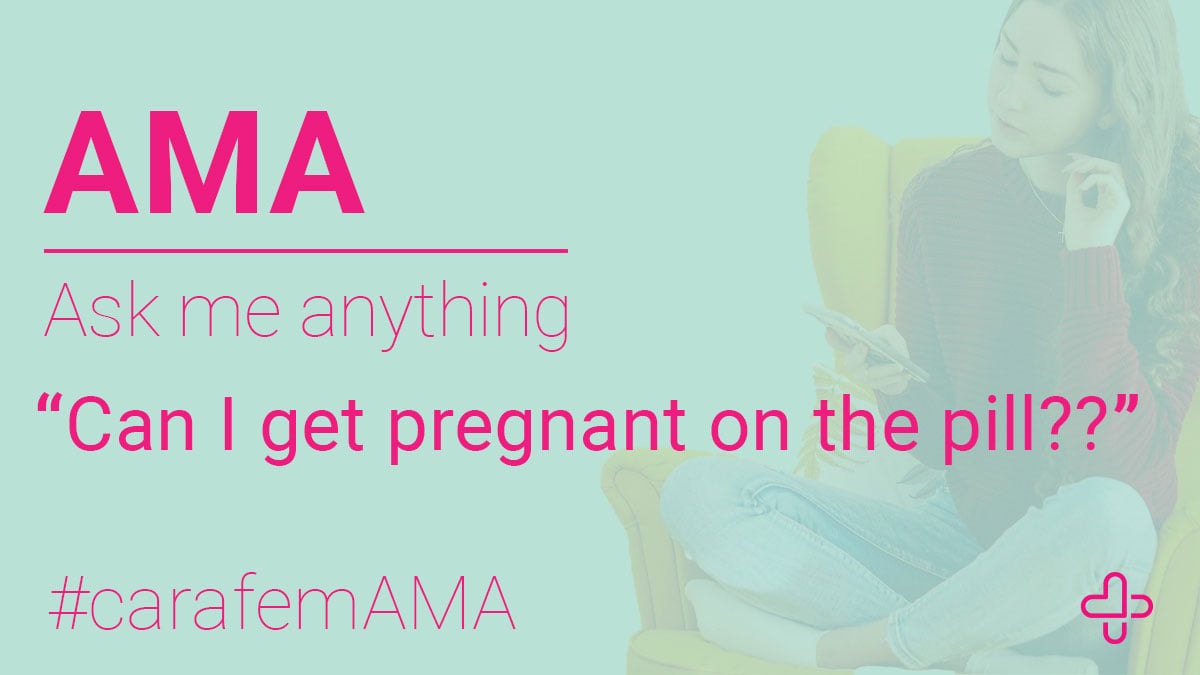The abortion pill vs. emergency contraception

Let's look at the abortion pill vs. Plan B, also known as emergency contraception
Emergency contraception prevents a pregnancy
You may have heard of emergency contraception (EC), also known as "the morning after pill" or sometimes by the brand name "Plan B." Emergency contraception pills are a great way to prevent pregnancy up to 72 hours after unprotected sex and are an excellent resource if a condom breaks or birth control fails.
Abortion pills end an existing pregnancy
You may have also heard of the abortion pill, which is a totally different medication with a totally different purpose. Instead of preventing pregnancy from occurring, the abortion pill safely and effectively ends an already-existing pregnancy within the first 12 weeks.
Though the abortion pill is gaining momentum in the U.S. as a popular way to safely end a pregnancy, many people have still never heard of it. At the same time, some folks incorrectly believe that emergency contraception causes an abortion; again, it doesn't! Only the abortion pill causes an abortion, so remember, emergency contraception will not interrupt an existing pregnancy.
Which one should you use?
So, abortion pill vs. Plan B - when should you choose emergency contraception over the abortion pill or vice versa? To put it simply, emergency contraception pills are best for "oops" moments -- and should be taken as soon as possible within 5 days after unprotected sex has occurred.
On the other hand, if you are already pregnant and within the first 12 weeks of pregnancy, you may want to use the abortion pill.
Frequently asked questions
The abortion pill stops pregnancy growth and stimulates the uterus to expel pregnancy. Emergency contraception prevents pregnancy by preventing ovulation. In other words, it keeps your body from releasing an egg.
The most common type of emergency contraception comes in the form of pills you can buy over-the-counter at the pharmacy with no doctor's prescription needed. Look for Plan B or a generic version. These pills should be taken as soon as possible within 5 days after sex, and ideally within the first 72 hours.
Effectiveness of emergency contraception decreases by day -- so hop to it!
Another brand of EC, called Ella, can be taken up to 5 days after unprotected sex, with no decrease in effectiveness during that time. It does require a doctor's prescription, though.
Emergency Contraception (Plan B) does not cause an abortion. Emergency contraception pills work to prevent pregnancy after sex and will not cause an abortion if pregnancy has already occurred. Abortion pills will cause an abortion.
The morning-after-pill, like Plan B or generic EC, should be taken as soon as possible within the first 72 hours after sex for best results. Ella brand EC can be taken at any point within 5 days after sex, but, again, can't be purchased over-the-counter.
The abortion pill can be taken at any point within the first 12 weeks of pregnancy. Learn more about how to take abortion pills.
Yes! Although it's a lesser-known option for emergency contraception, the Paragard (copper) IUD works as emergency contraception up to 5 days after unprotected sex. Also, once it's inserted, it is one of the most effective ways of preventing pregnancy for up to 12 years -- without affecting your future ability to become pregnant once it's removed.
The copper IUD can be removed at any time. Having the IUD put in or removed takes only a few minutes. Any trusted healthcare provider, like carafem or your regular OB/GYN can help you with the process.
Once it's in, you're protected from pregnancy right away -- and once it's out, you can start trying to get pregnant immediately if you so choose.
The morning-after-pill can be purchased over-the-counter from your local drugstore or at your nearest carafem. Ella can be found at campus health centers, through your general practitioner or OB/GYN, at urgent care centers, or at an emergency room.
The abortion pill must be obtained from a trained provider at a clinic or health center.





